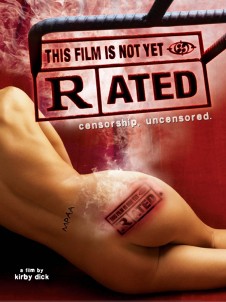The final day of
TransFormations I, Remixing the Archive, was a wonderful affair.
I missed the first event, the winner of USC's Free Culture NIGHT OF THE LIVING DEAD remix competition. I did check the winners out,
Sami Kriegstein - Night of the Living Advertisements (YouTube) (Internet Archive)and Michael Rossmassler - Sugar on My Tongue (YouTube) (Internet Archive). Rock on!!!!
Imagine a brand new cinema: one that goes back in time and follow the road not taken when those Hollywood Pirates left the East Coast and committed themselves to a passive theatrical experience. The panel discussion,THE ROOTS AND FUTURE OF REMIX with
Barbara Lattanzi,
Anne McGuire,
Sean Deyoe and
Aram Sinnreich took us back in time to the early 20th Century when film - believe it, we saw the examples - was an active medium with Karaoke features embedded in the viewing experience.
Is remixing really new? Hasn't it been around for centuries both as an artistic practice and maybe since the beginning of this century? Aram jump-started things with an interesting opening. He's been
focusing on the organization patterns in culture, with a focus on music creation, to develop a workable theory of network culture. Basically, he's
looking at the radical changes in music and what that presages about our uncertain cultural moment, one where Gnarls Barkley/Danger Mouse CRAZY, a remix, is the top summer hit. His point is that it's never been easier to de-fragment, re-fragment the piece of content to make something new. There's a litany of other remix examples....
Next Barbara Lattanzi gave an amazing presentation. She traced back to early, early 20th Century film and showed how, at the beginning, there was a fork, the road not taken. This road gave audiences a hilarious degree of agency. We watched shorts from I think 1920's where audiences would sing back and follow songs, almost karaoke-like, before a feature. It's a radical thought: one would have happened in film became an active, agent experience where the audiences was mobilized?
She gave numerous examples in her work where she's breaking down the passivity model using
idiomorphic software. My favorite was her work on the Zapruder-Kennedy assassination reworking and examples of her C-SPAN Karaoke, my favorite being the Alberto Gonzalez karaoke. I can't recommend enough that people check out her website and follow her work.
Why start the
Titantic leaving the East Coast? I'd prefer to see the film start with Kate as an old woman. Anne McGuire showed how to do this. Anne presented her
remixing, deconstructing, remaking of class films, renamed ADVENTUR POSEIDEN, THE [get the joke Warner Brothers] (The Unsinking of my Ship). We watched how she had the perfect content to remix so that the film starts with the helicopter dropping our lucky group INTO the Poseiden and the ship then unsinks itself. All the content, all day, was great and you should check out her films where possible. What a happy ending!!!!!! The ship rights itself!
Finally and perhaps most interestingly to me given my Online Community focus, there was Sean Deyoe from
Betalevel. Betalevel creates and offers remix parties/events/salon - literally creates community where it did not exist employing remix tools. I'm most attracted to the "Swap Meet
Piracy - Karaoke - Conviviality." These are events where people come together to share musical files, but more importantly to gather and sing karaoke. What's so fascinating, what Sean himself finds remarkable about the events is simple: People are far less interested in "stealing"/"sharing" each other music, although they do share music. But the focus always is on the singing/enjoying each other's company.
This gets back to
BIG MEDIAS' need for Psych 101 re-education. You don't make honest people dishonest and you don't scare dishonest people into being honest by stupid intimidation tricks. Put another way: human nature did not change with the invention of Napster. If you're the music business, you simply alienate and lose a whole generation of users.
Betalevel shows a third day: you build trust, create a connection between fans, allow them to come together (
off AND online) and share, and boomm, you'll make a boatload of money and your fans will be happy.
One theme that emerged in the panel discussions was the sense of "something" emergent or
ambient. That is, all the panelists spoke of something "special," almost a magical fusion generated between fans/users and artistic forms. New
remix technologies strives to share this content and empower this connection. This sharing, this radical digital transformation of content and space is something new. I found the language to be spiritual in the
native-american spiritual ecology sense of connecting to something larger when you share yourself within or with a larger entity.
This is a unique, strange time.
The grand finale was a bravura performance by
TV Sheriff and the Trailbuddies. The crowd loved it. So did I. During the performance, a little girl, one of the TV Sheriff's guys' daughter, danced by the stage, roaming around the front.
I couldn't resist the feeling walking to my car that "that something" is already being lost amidst all this "connecting". At the very least, it is becoming more and more concealed, harder to imagine, to see amidst the clutter (no mas
Web 2.0 hype) of our mediated society. Children don't understand
organizational forms of culture,
boingboinging,
axis of evil and such. They simply like to dance while their dad plays in a band.
 This Thursday, I'll introduce director Kirby Dick and his movie "This Film is Not Yet Rated" at a free screening at USC. The screening is sponsored by the USC Free Culture club, a campus organization dedicated to promoting liberty, openness, and access to information.
This Thursday, I'll introduce director Kirby Dick and his movie "This Film is Not Yet Rated" at a free screening at USC. The screening is sponsored by the USC Free Culture club, a campus organization dedicated to promoting liberty, openness, and access to information. Dick's documentary revolves around his efforts to unmask the identity of the secret censor board. He hires a private eye and sets her to work (the CSI elements of the film are really juicy -- it's fun to see how private eyes really work). Threaded around this are interviews with filmmakers who've had run-ins with the board, and, as a climax, Dick's own Orwellian adventures in submitting his documentary to the censor board whose identities he has uncovered.
Dick's documentary revolves around his efforts to unmask the identity of the secret censor board. He hires a private eye and sets her to work (the CSI elements of the film are really juicy -- it's fun to see how private eyes really work). Threaded around this are interviews with filmmakers who've had run-ins with the board, and, as a climax, Dick's own Orwellian adventures in submitting his documentary to the censor board whose identities he has uncovered.





